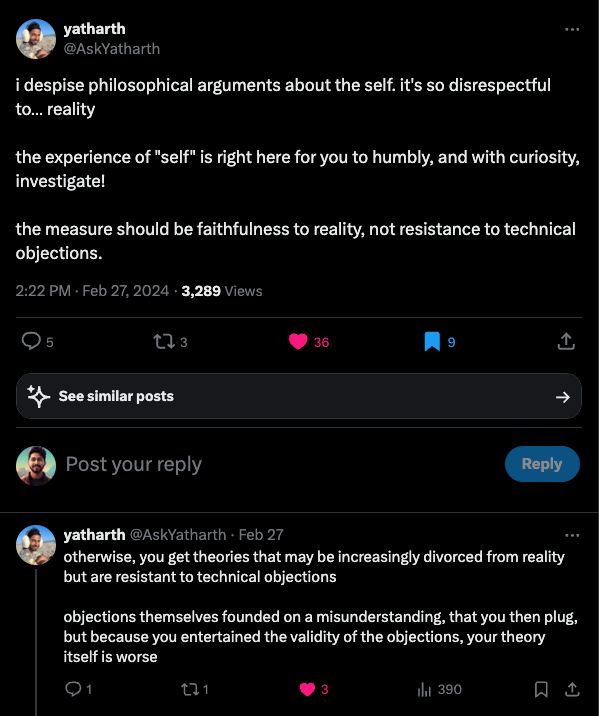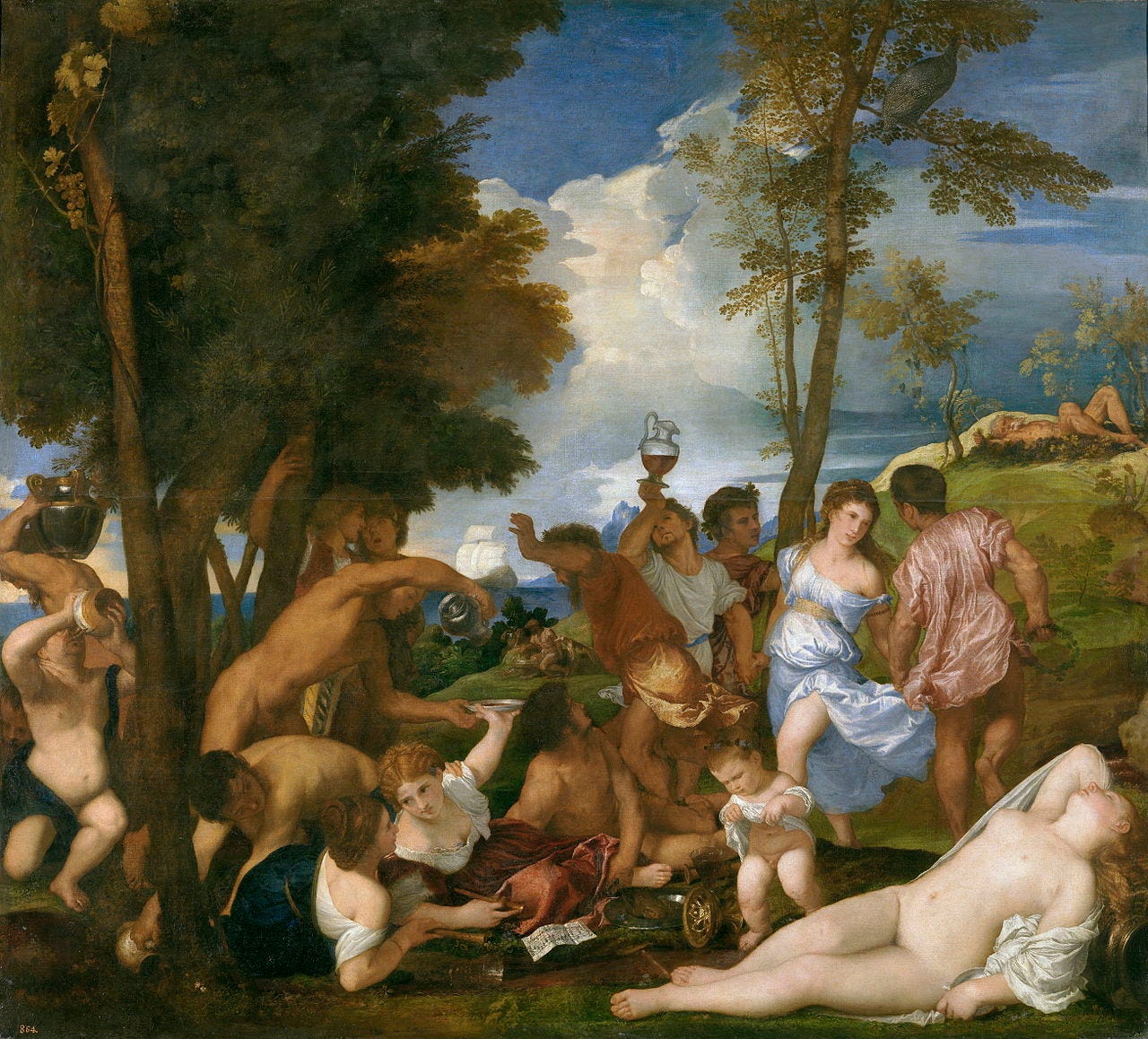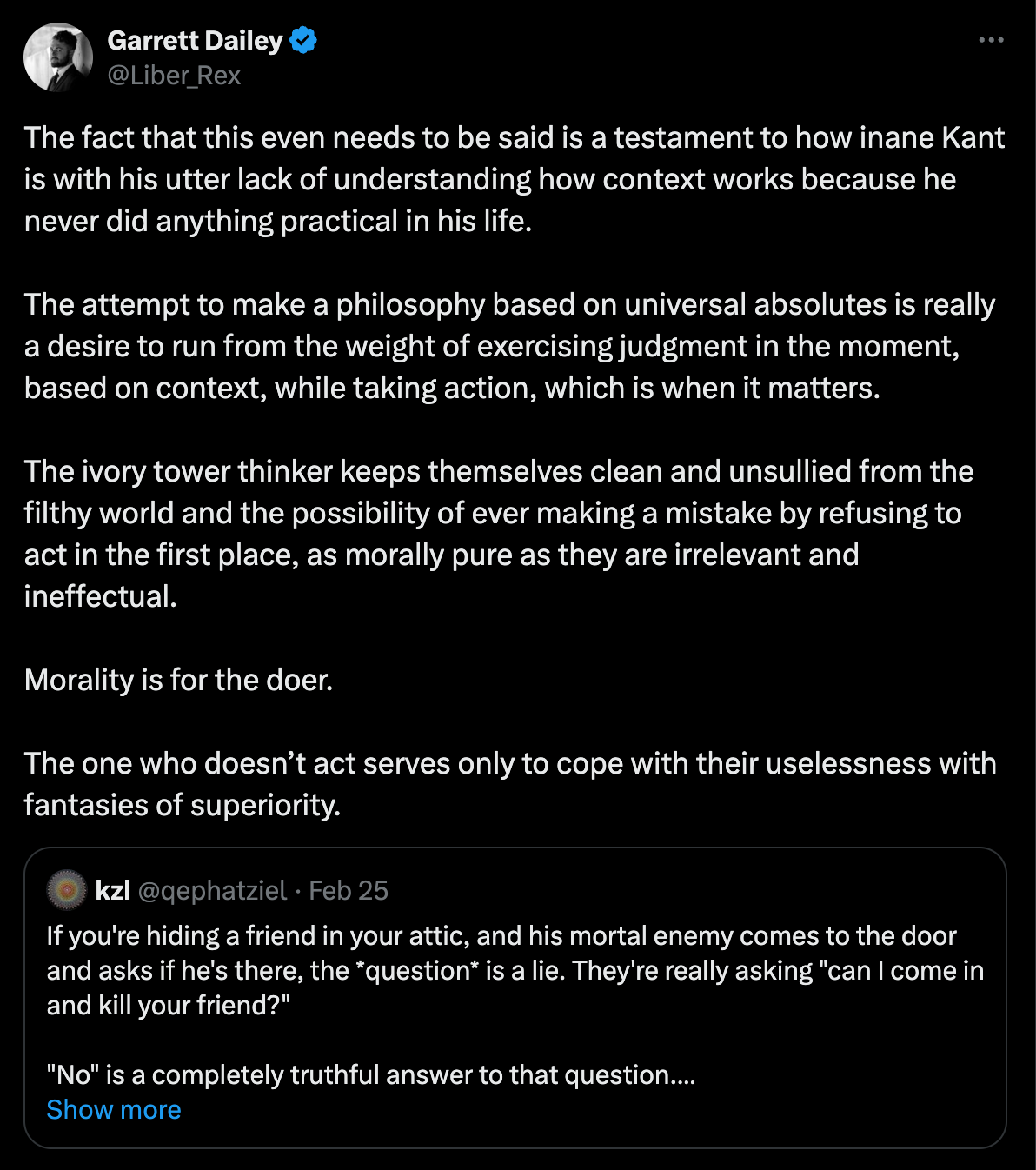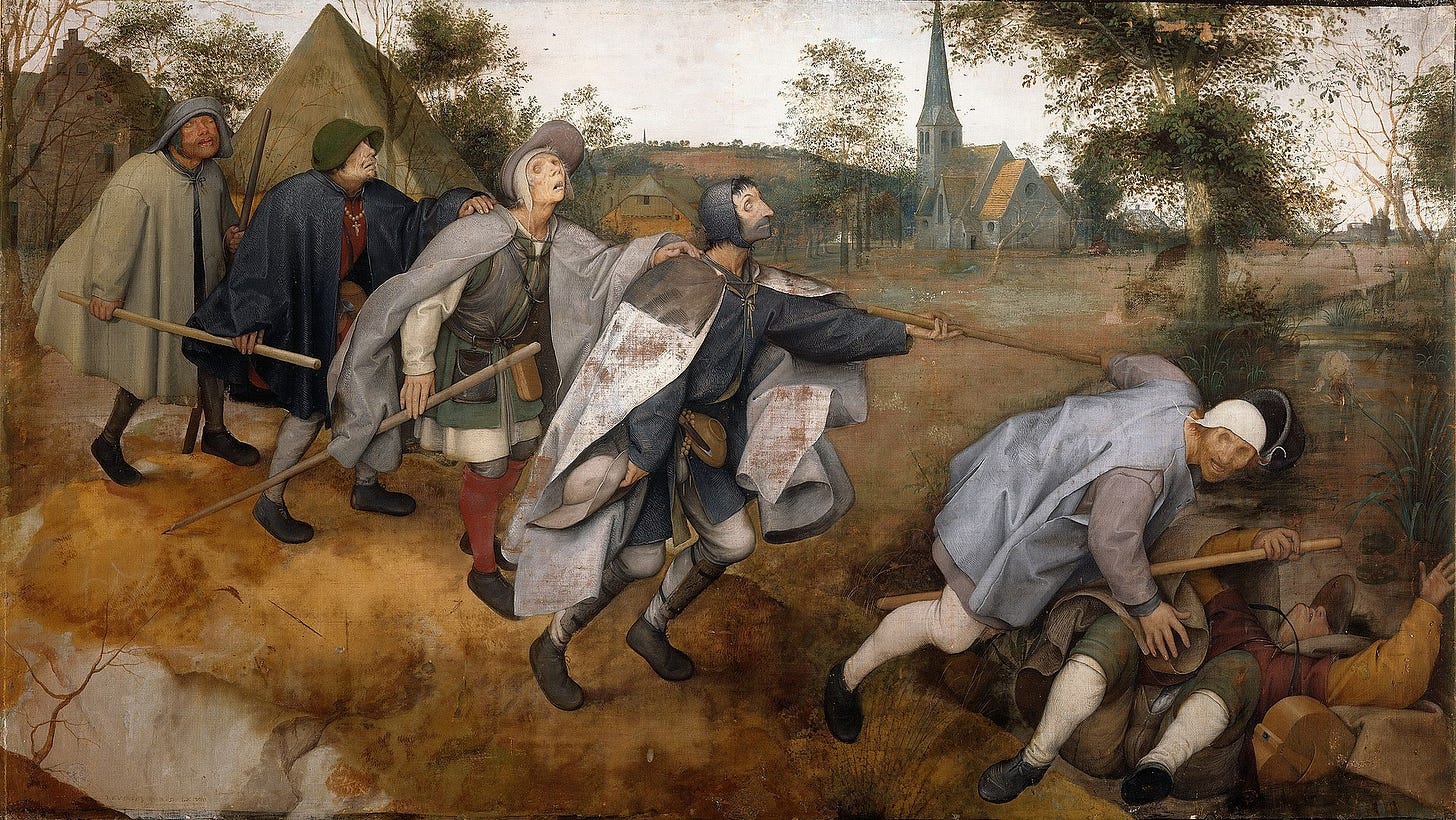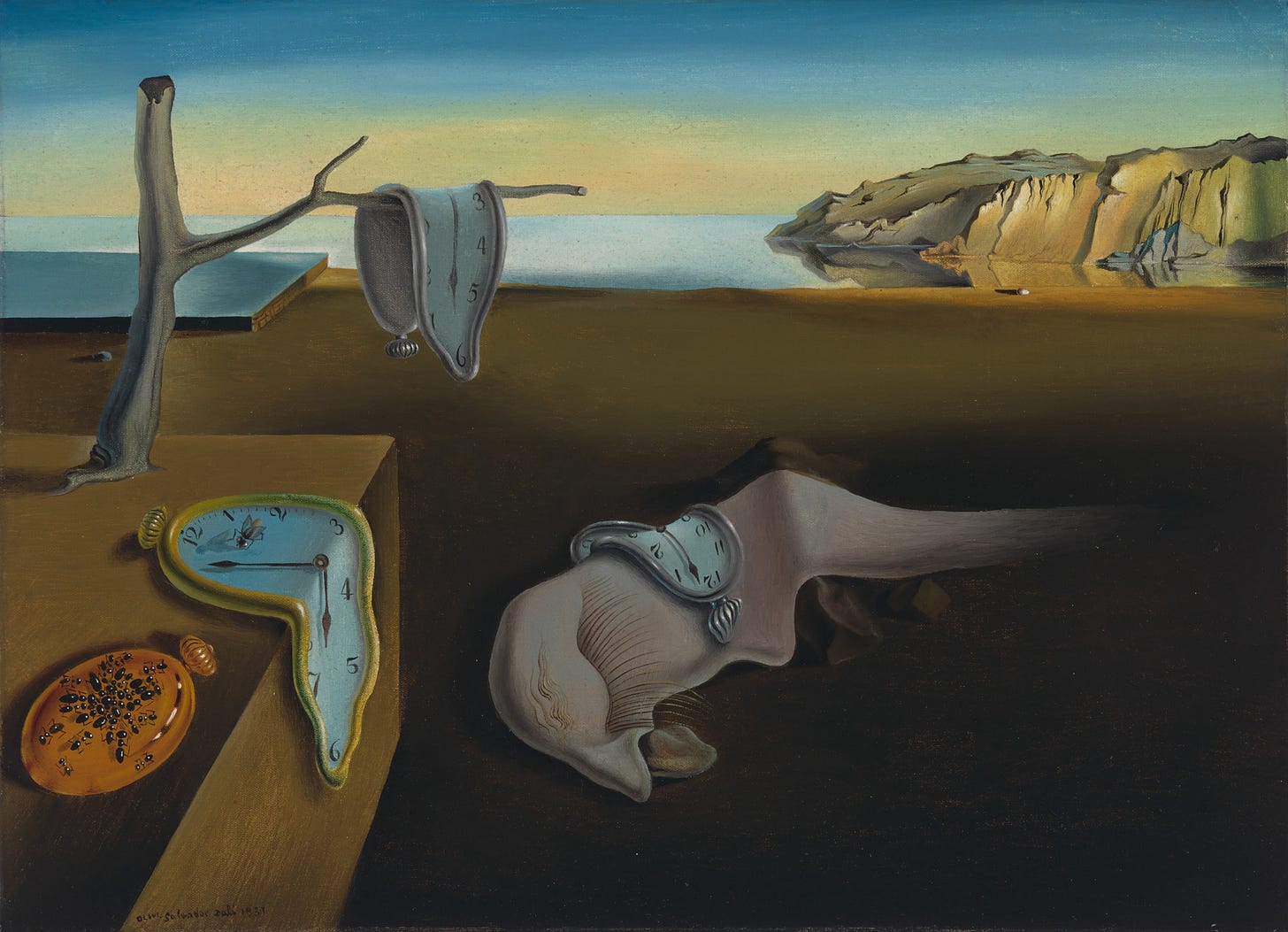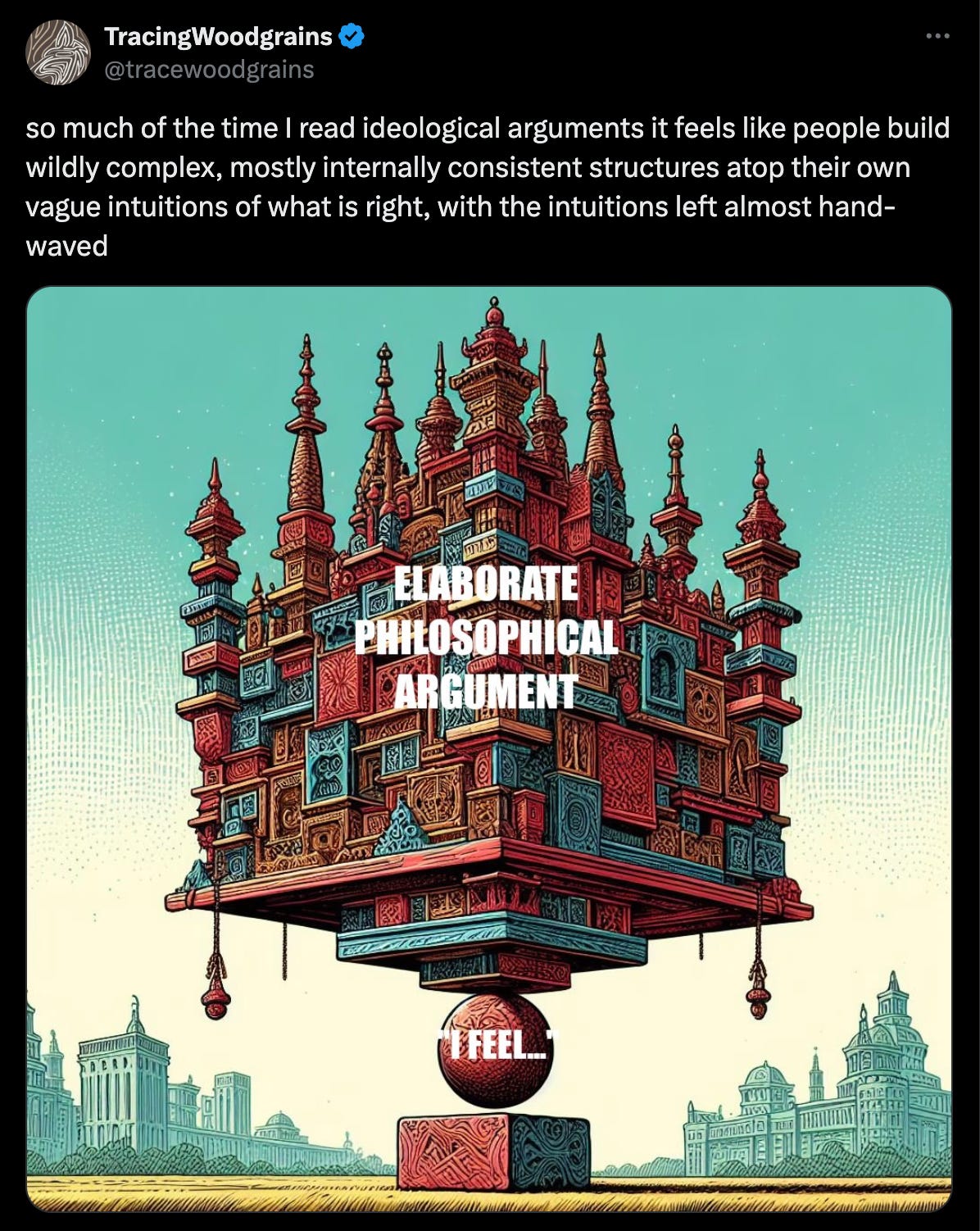Musings on ways of knowing
putting on my wannabe-epistemologist hat
Some rough and slightly controversial thoughts on how worldviews are constructed. There’s a lot of overlap with one of my earlier posts.
Depth != correctness
I think intelligent people too often confuse a deeply thought-out worldview for a “correct” one.
I’ll take a part of what
says about philosophical arguments of the self, and generalize it to arguments of all kinds. An argument that is complex, well-cited, and resistant to technical objections has a special appeal to a particular kind of bookish, thoughtful person. But that says nothing about how true it is! Does your worldview help you live a good life, make money and sustain yourself, cultivate nourishing relationships with people, build something tangible of value to others?It’s easy to get too enamored by intellectual depth, and lose sight of correctness. Your ideas are worth nothing if they don’t interface with reality well.
Philosophy should be a part-time endeavor
Being deeply thoughtful about the world is a virtue, but the inputs to the worldview construction function should be more your learnings from trying to get things done in the here and now, less abstract ideas and concepts. There is certainly a joy in participating in the eternal intellectual conversation that other people have been having across time and space - don’t eschew the impulse to engage. But - have you tried to get something done in the real world? Or are you just reacting to the web of technical arguments being spun in your head, over some niche edge case that isn’t relevant to most people most of the time?
I’d much rather learn from the mind of an entrepreneur, scientist, politician, trader, matriarch/patriarch, soldier, artist, athlete - than someone who’s a “full-time philosopher”.
Action is a better teacher than pure thought. The opinions of a doer will often come across less coherent than that of a thinker - you should still trust the former.
Intellectual masturbation can feel great, but don’t let the fun of it delude you of its value.
The perils of naive absolutism
I almost think no one below the age of thirty should study philosophy.
There is a hubris that comes from feeling like one has the world figured out at a young age, often from having read the “right” books and won the classroom debates, that is only tamed once they’ve faced some strife or confusion in their life. Till then, people like this tend to be insufferable. They deal in rigid absolutes, and are oblivious to the nuances and messiness that real adult life consists of. They also probably have never formed a deep human bond with someone from a very different cultural context or value system as them.
The failure mode looks something like: “My worldview has to be correct, because I’ve properly synthesized Aristotle and Spinoza and Nietzsche and the Bible and everyone else. If it contradicts your lived experience, you’re the one who’s wrong.”
I’ll borrow from
here:If you find yourself often having to do a lot of mental gymnastics (“Hmm, is it ethical to lie in this case? Does the life of my friend trump my commitment to the truth?”), it’s a sign that something’s wrong! Common-sense morality stands highly underrated.
Crude absolutism is the epitome of naïveté. A kind, gentle uncertainty is a much better posture for going through the world than a rigid overconfidence.
(Relatedly, this is why travel is valuable. Nothing challenges your presumptions about the world like sharing some laughs and some beers with someone who comes from a wholly different cultural context, with different politics, social norms, values, religious beliefs.)
Reality is messy
Real life doesn’t fit neatly into boxes of right or wrong, good or evil. Real life is messy, with infinite shades of grey. Any set of beliefs you have will always be incomplete.
It is much better to go through the world of ideas with the mindset of an explorer (which means often you may be lost, uncertain, or confused) than with the mindset of a debater (who has their conclusions already made up and only listens to differing ideas to argue back against them). True, deep engagement with a contradictory idea has to be done emotionally (“Hmm, what if I’m actually wrong here.. ouch”), not just intellectually.
Rationality is overrated
Something can be well-reasoned and still be wrong. Similarly, something can be badly reasoned and still be right.
People overestimate their capacity to think independently, and underestimate the extent to which their circumstances dictate their worldview. More often than not, we don’t derive our opinions from some set of axiomatic truths about the universe, rather we reverse-engineer them from our contexts and relationships - and then convince ourselves that whatever circumstances we ended up in are the “right” ones after all!
At the end of the day, the conscious is downstream of the subconscious. I think the emotional human need to fit in and be surrounded by love tends to trump the rational need to find truth - and then the mind makes up a story after the fact.
The argumentative theory of reason posits that reason evolved not to inform our actions and beliefs, but to explain them and defend them to others. Reason evolved to persuade, not to find truth.
[Reason] was an adaption necessitated by our being a highly social species. We may use reason to detect lying in others, to resolve disputes, to attempt to influence other people or to explain our actions in retrospect, but it seems not to play the decisive role in individual decision-making. In this model, reason is not as Descartes thought, the brain’s science and research and development function - it is the brain’s legal and PR department.
— Rory Sutherland, Alchemy
Intelligent, articulate people are simply better at arguing their positions, not at actually being right! And the worst kind of “intelligent” person is the one that “muddies the water to make it seem deep”, as Nietzsche said.
If you ask “why” enough times, you reach nothingness (or “because God said so”, which is effectively the same thing). And I’d much rather the honesty of embracing this uncertainty, than the delusion of thinking that the “I feel…” sphere is anything more substantial.
The joy in curiosity
All that being said, curiosity is something to be treasured. Introspecting, contemplating life’s mysteries, reading, arguing about ideas with friends - these things will always feel joyful and meaningful to me. More than anything, this is a reminder to myself to let action take priority as much as I can. Think less, do more.

